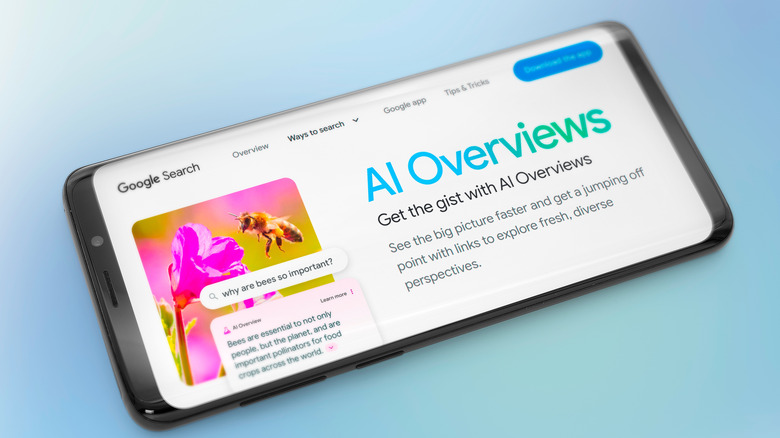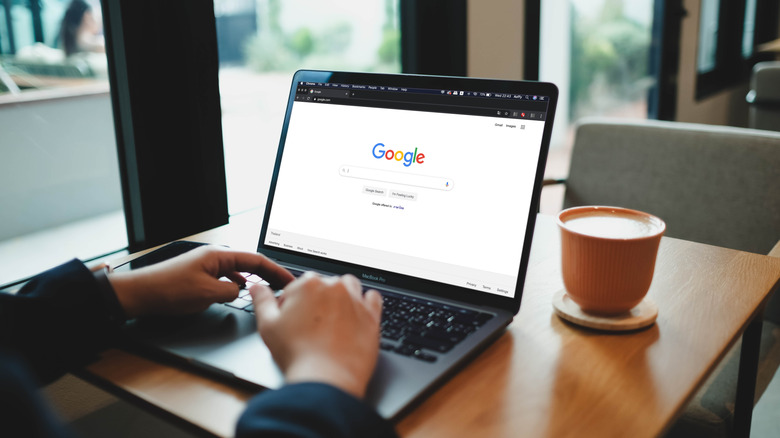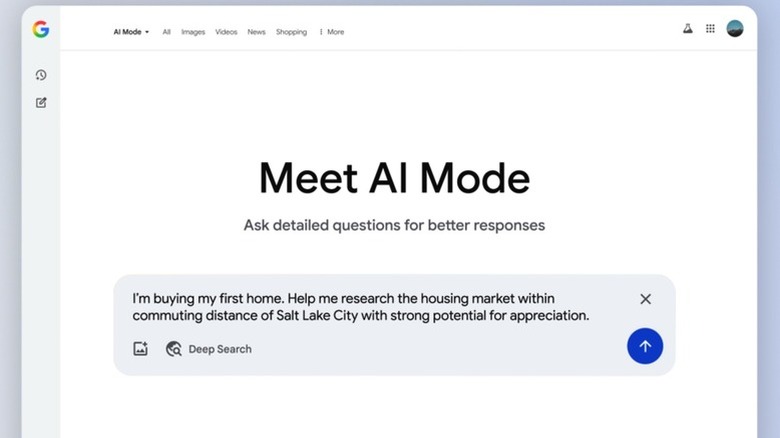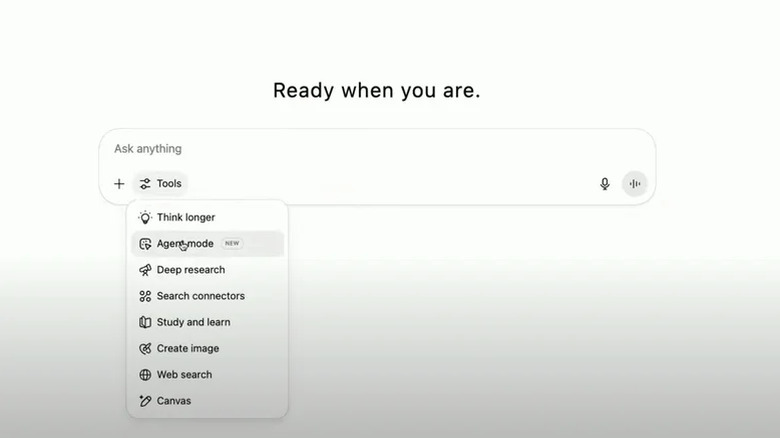You're Probably Using Google AI Overviews Wrong - Here's What You Need To Fix
Google introduced AI Overviews in Google Search last year, an AI-powered feature providing rapid answers to user queries. The launch hasn't exactly gone off without a hitch. AI hallucinations plagued the feature early on, including the now-infamous glue-on-pizza recommendations. Hallucinatory returns have diminished since launch, though AI Overviews will still make up stuff on occasion. Google has also expanded AI Overviews significantly since the May 2024 launch.
According to Google, AI Overviews are incredibly popular with users. Studies show that AI Overviews caused a dramatic drop in search traffic from Google. Google disputes those findings, but if all the data are accurate — that AI Overviews are widely appreciated and Google Search users make fewer visits to AI Overview sources — then it means you're using Google's tool wrong.
Ever since ChatGPT went viral in late 2022, we've seen a panoply of AI chatbots emerge online, including Google's Gemini, the model that powers AI features in Google Search. All chatbots work similarly. They predict the next word rather than actually showing real intelligence or reasoning. That makes all of them prone to mistakes. You shouldn't trust AI blindly no matter what service you use. Verifying sources is a must in today's information ecosystem, and that's how you're using AI Overviews wrong.
Studies on AI Overviews
According to The Guardian, a new study claims that AI Overviews cause 79% fewer clickthroughs to top results in Google Search. The data come from analytics company Authoritas, which found a site ranked first in Google Search before AI Overviews debuted would lose a significant chunk of traffic. YouTube links would also get prominent placement compared to other search results. This study is now part of a legal complaint to UK regulators on the impact of AI Overviews.
The report mentions a second study from US thinktank Pew Research Center that found users only clicked a link under the AI Overviews once every 100 times. The study followed 69,000 Google searches for about a month. Google disputed both studies in comments to The Guardian, citing flaws in the methodology. A similar study from GrowthSRC Media found that clicks on top links in search results have dropped by 32% with the arrival of AI Overviews.
Google advertised AI Overviews as a source of traffic in August 2024. "With AI Overviews, we're seeing that people have been visiting a greater diversity of websites for help with more complex questions. And when people click from search result pages with AI Overviews, these clicks are higher quality for websites — meaning users are more likely to spend more time on the sites they visit."
An impending AI disaster
Google CEO Sundar Pichai said during the company's Q2 2025 earnings that "AI is positively impacting every part of the business." Per The Verge, Google parent Alphabet reported $96.4 billion in revenue for the period, a 14% increase over last year. Google Search revenue reached $54.1 billion.
Pichai shared figures about AI in search, saying AI Mode has more than 100 million users in the U.S. and India. AI Overviews has over 2 billion monthly users across more than 200 countries. "We are also seeing that our AI features cause users to search more as they learn that Search can meet more of their needs," Pichai said. It's "especially true" for the younger generation.
Pichai hasn't addressed user behavior like the ones the study above highlights. But even without official figures, analytics from media companies highlight a growing problem. The Guardian notes that UK publishers have experienced lower traffic since AI Overviews were introduced. For example, MailOnline noted clickthrough rates dropping by 56.1% on desktop and 48.2% on mobile during the month of May. UK publishers are looking to the Competition and Markets Authority for help with their complaint.
The problem is obvious and serious. Google uses internet data to train frontier AI models that power features like AI Overviews. That data comes from news sources and blogs that count Google Search as a revenue stream. While Google might be defending AI Overviews now, if the studies are accurate and people aren't clicking on search results as often as before, future AI models will suffer. In turn, Gemini and AI Overviews will be directly impacted, including the quality of the summaries they offer.
How to improve your AI Overviews experience
I get it — it's just easier to search for something, read the AI Overview you that appears above the search results, and move on with your day. But I'll remind you of something I've been pointing out since the early days of ChatGPT: You can't fully trust AI to deliver hallucination-free results.
Even if AI Overviews aren't likely to tell you to top your pizza with glue anymore, hallucinations have not disappeared. If you want accurate information from the web, you shouldn't rely exclusively on what the overview is telling you without double-checking the information. Scroll through the Google Search results, click on a source, see if the AI Overview was right.
This isn't (just) about supporting those websites that work to provide the information you were looking for. It's about developing healthy habits for browsing the web and accessing information in the age of AI. The alternative is living in a world where what the AI says is taken at face value and considered the truth, even if it's a hallucination. Asking for sources and checking them is something you should do with any AI tool you use, not just AI Overviews. I do it all the time with ChatGPT, and I've had fights with the AI when it failed to provide links to back up its claims. I've also corrected the AI or made it correct itself on several occasions when I was served hallucinations.



